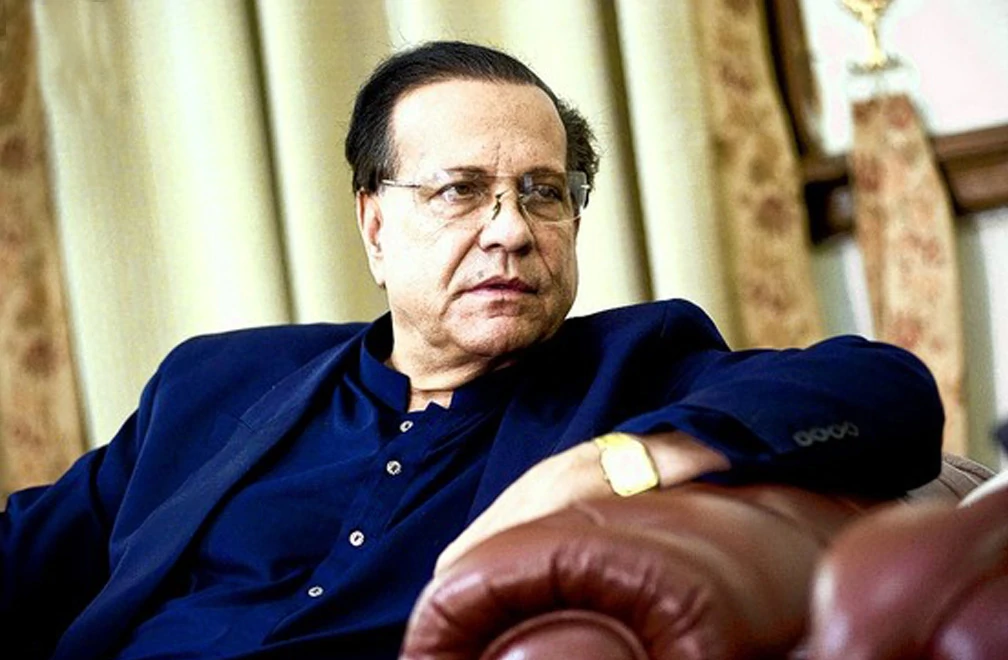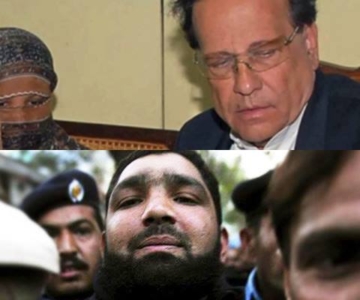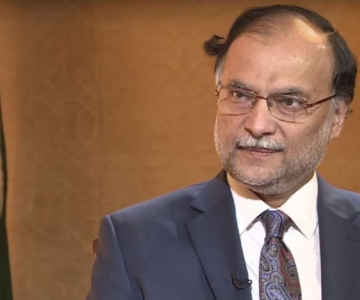On 4 January, Punjab province Governor Salman Taseer was killed by a member of his security detail, Malik Mumtaz Hussain Qadri. But as disturbing as the assassination itself were the circumstances surrounding and following the governor’s death… In the aftermath, the hold of Pakistan’s religious lobbies has proven to be so powerful that no mullah, not even one appointed and paid by the state, was willing to conduct his funeral rites. While progressive civil-society voices have condemned both the incident and the direction in which Pakistan is heading – an act of great courage in these times – they remain a desperately small minority.
The entire incident epitomises the very real existential crisis in which the Pakistani nation now finds itself – one that relates to its very identity. Successive governments in the country have been quiescent before the forces of religious fundamentalism, and over the years brought in legislation to appease the religio-political forces – including the blasphemy laws that have been under such scrutiny of late. Today, this has reached a situation in which the country’s religious minorities (constituting less than five percent of the national population) are beleaguered amidst a legal system that denies them basic human rights. In turn, this has enabled fundamentalist ideologies to take firm hold in the minds of government functionaries. The support of the state and its security agencies, including sections of the armed forces, to such sections has now reached a point where they are becoming a threat to the very existence of the Pakistani state itself – at least, in the form we know it.
The ruling coalition in Islamabad, led by the secular-liberal Pakistan People’s Party (PPP), finds itself in an intractable situation. While it has termed Taseer’s assassination a political conspiracy, it is wary of openly challenging the blasphemy law. The PPP remains haunted by the 1977 movement against then-Prime Minister Zulfikar Ali Bhutto, which led to General Zia ul-Haq’s infamous coup. That year, the religious right was a vocal minority; but in the Pakistan of 2011 it is very influential, having penetrated almost every institution of the state and society. Most importantly, the proliferation of jihadi groups during the past decade has made matters worse, as the religious parties now have allies who are armed and willing to die for the ’cause’.
As noted, the successive civil and military rulers of Pakistan have been jointly responsible for appeasing the religious lobbies. Worse, Pakistan’s foreign policy, especially its India-centric worldview, has entailed using the religious lobby as a strategic lever against India in the east and, of late, against the US in the west. Given that national-security policy is still being driven by Pakistan’s all-powerful armed forces, a weak civilian government can do little to bring about meaningful change.
During Gen Zia’s rule, the state establishment encouraged the formation of militant madrassas across the country, with heavy financing from West Asia, especially Saudi Arabia. This was done to prepare a jihad industry to aid in the West’s final battle against the USSR in Afghanistan. However, Zia also altered Pakistan’s legal system to introduce ‘Islamic’ amendments and clauses, which were often sectarian in nature and by no means consensual interpretations of Sharia law. At the same time, the curricula in schools underwent a radical transformation to prepare generations of Pakistanis who would provide the wider public support for the jihad enterprise.
The post-Zia civilian governments were far too weak and incompetent to forge a consensus on these vital issues. General Pervez Musharraf initiated half-hearted attempts to reform the curricula and madrassas, and his efforts ultimately foundered amidst the Pakistan Army’s schizophrenic engagement in the US-led ‘war on terror’. The result is that Islamist ideology drives the state at the same time as it indoctrinates the majority. This particular mindset has been amplified in recent years due to the emergence of a powerful electronic media, whose news anchors and analysts are often soft supporters, if not actual mouthpieces, of extremist ideologies.
The myth that Pakistan’s peaceful majority Barelvi sect was an antidote to the more militant Deobandi and Wahhabi-Salafi variants – financed by Gulf states – has also been shattered. Taseer’s murderer belongs to the Barelvi sect, and his support post-assassination has cut across all sub-groups.
Pakistan’s ripples
Today, the progressive, liberal voices in Pakistan are isolated. There have been some suggestions that Taseer’s statements with regard to the blasphemy laws and Aasiya Bibi, the Christian woman charged under these laws, were ill-advised and badly timed. But the sad reality is that, in the current context, there is never a good time to raise such issues. Progressives in Pakistan are now an endangered species, as the major moderate political parties are unwilling to either take a strong position on this law or join ranks with minority voices from civil society. Despite increasingly vocal threats against them, however, the liberals in Pakistan are trying to organise themselves to mount a challenge to this extremist ideology.
The death of Taseer was a huge blow to the prospects of de-radicalising Pakistan. Meanwhile, many global commentaries contain a distinct element of schadenfreude or a note of ‘I told you so’, directed at the very Pakistanis who are fighting to create an open society. In India, some mainstream publications have been practically chortling at the horrific turn of events, and have been quick to write obituaries for the Pakistani nation. Pakistan’s neighbours and the world community need to realise that what is happening in Pakistan will have direct repercussions throughout the region, and they need to come to the support of progressive forces in Pakistan. Pakistan’s example should also serve as a warning to India, which needs to address the issue of Hindutva fundamentalists increasingly resorting to acts of terror, as discussed in the accompanying commentary in this issue of Himal.
Southasia as a whole will suffer if the situation in Pakistan gets out of hand. Islamabad’s tottering civilian government is mired in a deep economic crisis – there is a need for wide-ranging structural reforms, and a short-term economic bailout might be even more urgently needed than it was in 2008. The northwestern tribal regions face US drone attacks on a daily basis, and the communities there are bracing for what will happen when international troops start to pull out of Afghanistan, scheduled to begin later this year. In such a situation, it is imperative that the India-Pakistan dialogue moves forward.
Himal expresses deep sorrow at the brutality that is today being displayed by the forces of intolerance and bigotry in Pakistan. We extend our full moral support to the secular and moderate forces of Pakistan who are waging an existential battle for the survival of a plural, tolerant Pakistan. We also implore Pakistan’ security establishment to take stock of where it is headed, and how its short-sighted strategies might well harm the country beyond redemption.
Source: Commentary published in Himal Magazine, February 2011
http://himalmag.com/component/content/article/3597-region-existential-crisis.html



